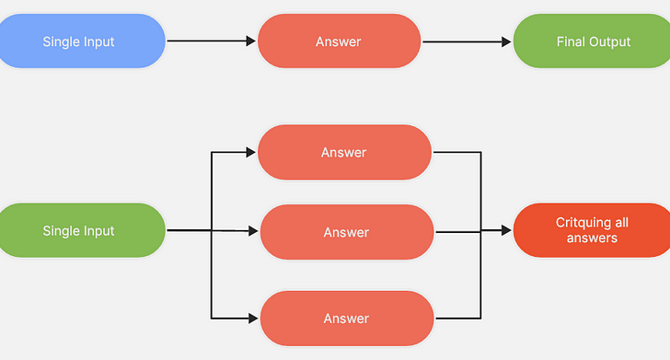Medium
1M
145

Image Credit: Medium
How AI is Evolving to Think Deeper: A Look at the Latest Breakthrough
- Large Language Models (LLMs) like ChatGPT and Gemini excel in various tasks but struggle with complex, multi-step problems requiring both creativity and planning.
- Traditional methods fall short in solving intricate problems due to narrow reasoning or limited solutions.
- Mind Evolution employs an evolutionary process where AI explores a wide range of ideas, iteratively refines solutions, and learns from feedback to achieve deeper thinking.
- It starts with generating candidate answers, evaluating them with a fitness function, and refining through critic-author conversation, recombination, and iteration.
- Mind Evolution was successful in tasks like travel planning, meeting scheduling, and creative challenges such as encoding hidden messages in poetry.
- The approach allows AI to handle complex problems, learn from mistakes, and improve problem-solving efficiency in natural language.
- While promising, Mind Evolution requires clear evaluation criteria, and further developments are needed for open-ended problems.
- Future research areas include extending the approach to tasks with no strict evaluation criteria, enhancing the feedback loop, and optimizing compute costs.
- Mind Evolution is a significant step towards achieving human-like reasoning in AI by mimicking problem-solving through brainstorming, learning, and iteration.
- The method allows AI to explore diverse solutions, refine them iteratively, and continuously improve performance on challenging tasks.
- The paper 'Evolving Deeper LLM Thinking' introduces Mind Evolution, highlighting its potential in solving complex problems by simulating natural evolution.
Read Full Article
8 Likes
For uninterrupted reading, download the app